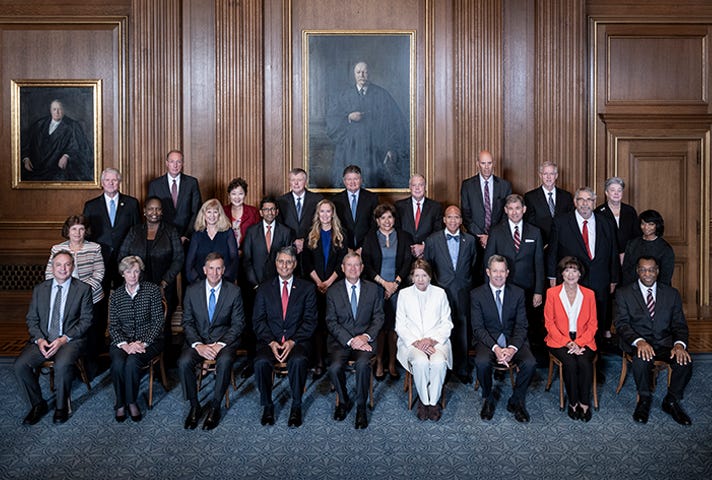Bonus 70: The Judicial Conference Moves to Curb Judge-Shopping
A proposed reform from the federal courts' policymaking arm should make it harder for litigants to steer certain cases to ideologically sympathetic judges. That's good for the Supreme Court, too.
Welcome back to the weekly bonus content for “One First.” Although Monday’s regular newsletter will remain free for as long as I’m able to do this, much of the bonus content is behind a paywall as an added incentive for those who are willing and able to support the work that goes into putting this newsletter together every week. I’m grateful to those of you who are already paid subscribers, and hope that those of you who aren’t will consider a paid subscription if and when your circumstances permit:
Today’s issue is prompted by Tuesday’s (surprising) news out of the Judicial Conference of the United States—the policymaking arm of the federal courts—that it will seek to sharply curb “judge shopping” by making it harder for litigants seeking coercive relief against state or federal policies to effectively hand-pick the judge to hear their case by filing in a specific forum. This practice has become far more prevalent in recent years. Indeed, the two highest-profile cases on the Supreme Court’s upcoming March argument calendar—the social media jawboning and mifepristone disputes—are both reaching the justices after nationwide relief issued by hand-picked district judges (that the Supreme Court subsequently stayed through unsigned, unexplained orders).
And that might be the most important takeaway here: The elimination of judge-shopping in the cases apparently covered by the new policy is going to have significant downstream effects—changing where at least some litigants choose to file statewide/nationwide lawsuits and, in the process, perhaps reducing the frequency with which we’ll see nationwide injunctions (and emergency applications respecting them). I still think that there’s more Congress can and should do to reduce the ability of plaintiffs to manipulate the already generous forum-selection rules in these cases, but it may not be a coincidence that the first two federal appellate judges to publicly criticize the Judicial Conference’s impending action are Republican appointees on the Fifth Circuit.

For those who are not paid subscribers, the next free installment of the newsletter will drop on Monday morning. For those who are, please read on.


